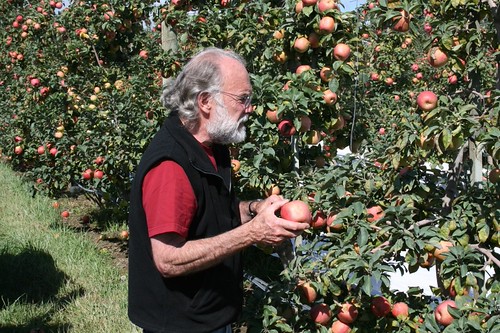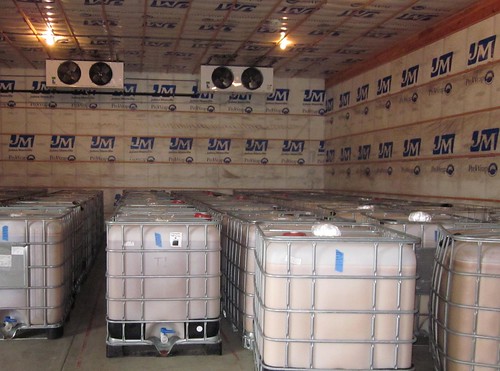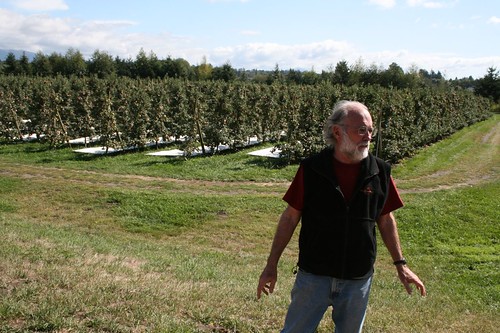
John and Dorie Belisle own and operate BelleWood Acres in northwest Washington State, near the Canadian border. The Belisles and their family planted their first apple orchard in 1996 and have 31 acres of high density trees, which pencils out to about 25,000 trees.
The Belisles started out selling apples to wholesale markets. After experiencing a downturn in the market, they knew it was time to diversify their operation and gain a competitive advantage to boost their margins when market prices drop. The Belisles wanted to open a retail store and had an agritourism model in mind.
In 2009, they purchased property from their neighbor to establish the retail store. Before opening the storefront, the Belisles wanted to install an additional cooler to have a marketing advantage.
They used a USDA Farm Service Agency (FSA) Farm Storage Facility Loan (FSFL) to purchase and install a cooler that increased their storage capacity by 210 bins. The additional cooler space allows the Belisles to store more of their apples on the farm to sell locally and diversify their operation. The cooler was built at the farm where there is a packing line, juice line and wholesale commercial kitchen.
“We did it to play the markets,” said Dorie. “If wholesale markets are strong, we sell; if prices are poor, we use the apples in our distillery. It makes us more secure in a world where prices are variable.”

FSFLs provide low-interest financing for producers to build or upgrade farm storage or handling facilities to store eligible commodities they produce. The maximum loan amount is $500,000 with a minimum down payment of 15 percent. Loan terms are up to 12 years.
The Belisles learned of the FSFL program through their FSA county office electronic newsletter and recently paid off the loan.
“We appreciate the support we get from FSA and USDA,” said Dorie. “It’s important to make sure we survive.”
The Belisles now sell wholesale and retail. Since they can store more apples on the farm, produce and farm products are sold at the Bellingham Farmers Market, Haggen Food Stores and Community Food Co-ops.
With additional cooler room, the Belisles decided to take it a step further and added a distillery to their operation. The imperfect apples are used to make spirits at the first “farm to glass” distillery in Washington State. They used a USDA Rural Development (RD) Value-Added Producer Grant (VAPG) that matched their financial contribution.
“With the grant, we were able to learn more about the spirit world and hire someone to help us establish a market and design labels,” said Dorie. “They also helped us get staff on board to make it happen.”
The goal of BelleWood Acres is to be a destination. The retail store sits off the state highway and offers 21 varieties of apples, sparkling cider, farm-ground peanut butter, caramel apples, pies, pastries and more. Visitors can shop the retail store, tour the distillery to learn about the process of growing, fermenting and distilling before ordering a bite to eat at BelleWood Acres Country Café, all while enjoying the view of Mount Baker. BelleWood Acres also has a u-pick apple orchard and pumpkins in the fall.
For more information on FSA programs, visit www.fsa.usda.gov or contact your local FSA office. To find your local USDA Service Center, visit http://offices.usda.gov.


